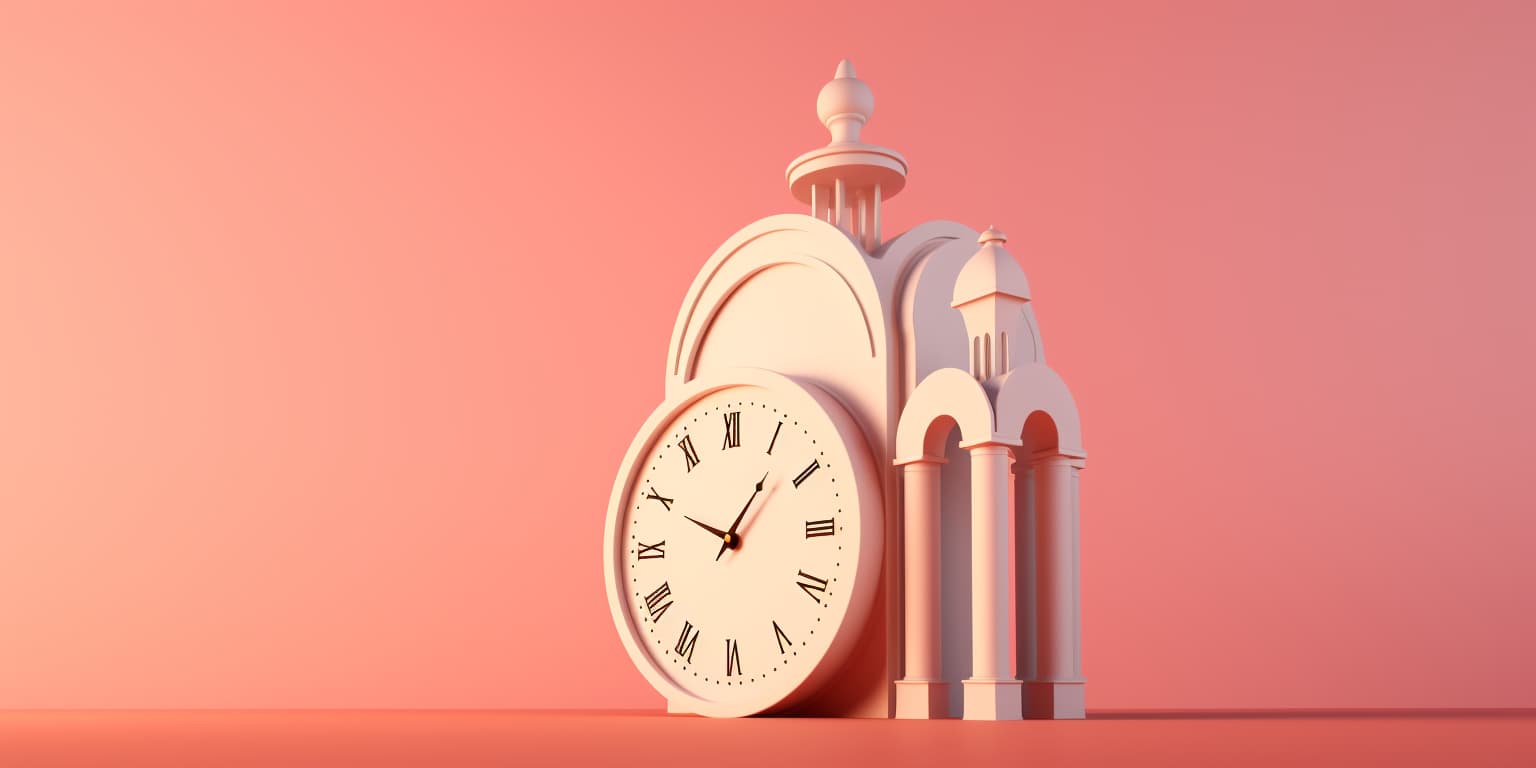Time is an inherent factor in our day-to-day lives that shape our routines and short-term and long-term actions. We live by time, and over time we will die, and without clocks keeping track of time for us, our modern way of life just couldn't exist. But who invented the clock, and why? Join us on a time-traveling adventure to answer this question.
Was Time Invented or Discovered?
This is very much a "What came first, the chicken or the egg?" style question. Time is both a factor of nature as well as a human concept (which we'll be talking about in the next section). Almost all early devices for timekeeping were centered around tracking the sun's movement from sunrise to sunset. Paying attention to the passing of time in nature was essential for early people when nighttime meant increased danger and daytime meant safety. In hot climates, measuring when the sun was at its highest point, and therefore hottest, could keep early civilizations safe from the effects of sun exposure.
Who Invented the Concept of Time?
Our concept of time evolved as human life evolved and was driven by a need to work the land, harvest crops, and store food for winter, hence the need for the creation of seasons. Once the concept of days (via sundials) and seasons were created, the tracking of a year became possible. A scientist named Aryabhata (476 AD-550 AD), an Indian mathematician, calculated that it takes 365 days and 6 hours for the earth to complete its orbit around the sun, which started to cement our formation of years.
The 7-day week which is used across the globe, evolved from Christianity and the need to mark the Sabbath (Sunday), the holy day when work was to cease and rest and worship was to occur. Still, through much of early history, outside of the devices used by governments and the very rich, time was mostly measured by estimated hours based on the movement of the sun.
When Was the First Clock Invented?
The first modern clock was invented by German inventor Peter Henlein in 1511, who introduced the world to the spring-driven clock. This rudimentary gadget, which frequently lost several hours over the course of a single day's labor, proved to be an important starting point for future innovators, who rapidly concentrated their energies on the task of constructing a small, strong, easy-to-use, and most crucially exact clock.
The Pomander Watch is the oldest mechanical timepiece ever created. It works like a modern watch today, with the hand indicating 12 hours on the dial. Mechanical clocks immediately proved to be quite reliable (for the time) and were the de facto timepiece until Christiaan Huygens developed the real pendulum clock in the late 17th century.
How Did the Person Who Invented the Clock Know What Time It Was?
The short answer is, well, they didn't, not exactly at least. In the early days of modern timekeeping, most villages and towns had their own time zone, based on when the sun would rise and set in their area. So, while early clockmakers could use existing knowledge of the seasons and motion of the sun, there was still a large amount of guesswork, not to mention the fact that many early clock examples needed to be checked regularly for accuracy. The international system of units only established GMT (Greenwich Mean Time) as the standard for the rest of the globe in 1885.
Final Thoughts
So, there you have it, time is both a natural process and a human construct that helped modern man transition from a hand-to-mouth existence to settlements with agriculture and townsfolk living and working to the same time schedule. Early timepieces have existed for thousands of years BC, but it was until the 1500s that the first modern clocks were created, and not until the late 1800s that a standardized time system was created.
